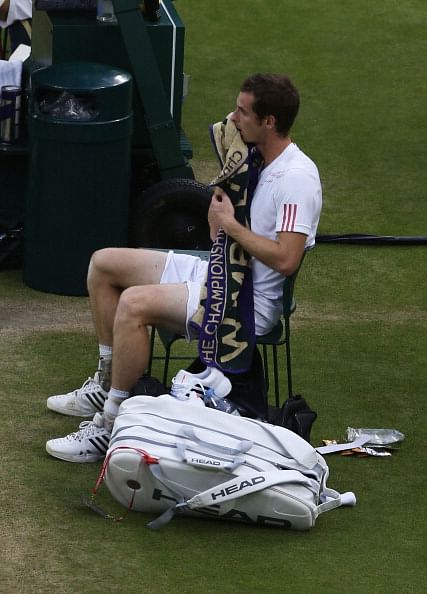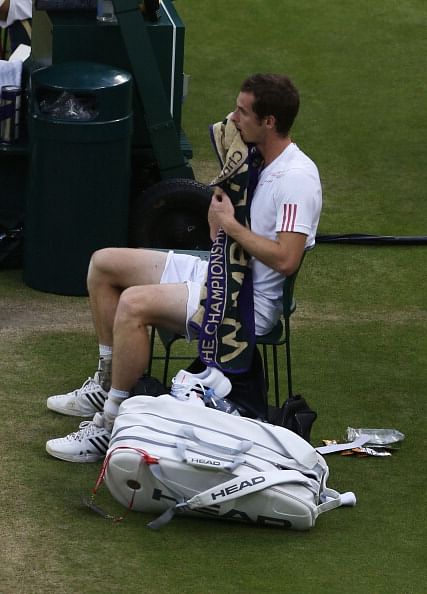
What next for Andy Murray?

Andy Murray of Great Britain reacts after being defeated in the Wimbledon final
The stage was set, the quills used to write the words for the history books were poised but unfortunately for the majority of the British public it was not the Scot who wrote the lines. Instead that honour fell to the greatest tennis player of all time, Roger Federer, who won his 17th Grand Slam title and 7th Wimbledon in majestic style on Centre Court yesterday.
Some had considered him a spent force and with Rafael Nadal and Novak Djokovic contesting the last four Grand Slam finals, the evidence was there to back up that claim. But the Swiss maestro decimated the former World number one in the semi-finals and produced an executioner’s kill in the final. He’s reclaimed his crown at the top of the men’s game a year after Djokovic opened up a chasm between the two last year. Of all the achievements Federer has managed over his career, this must rank amongst the best – and that is saying something for the greatest of all time.
But what does this mean for the runner up? This was the closest he has come to ending his heart-aching quest for a Grand Slam title. He won his first set in a Grand Slam final in four attempts and should have won the second set having played the better tennis of the pair but just like in so many of his encounters with Nadal last year, lost the big points when they really mattered and that cost him. When the roof closed it was virtually all over. A Swiss shark smelling blood in his home waters that he has ruled for a decade was always going to overhaul the gallant young pretender.
The problem now for Murray is that after five years of competing at the top of the sport he still doesn’t know how to win a Grand Slam. Fed, Nadal and Djoko faced ‘inferior opposition’ in their first finals installing the winning mentality into their minds giving them entrusted belief in themselves for the next final. Murray so far has faced Federer three times and the rejuvenated Djokovic in his four final appearances. Federer, Nadal and Djokovic had to beat Mark Philippoussis, Mariano Puerta and Jo-Wilfred Tsonga in their finals. Notice the difference.
This is where Ivan Lendl will be earning his rather large salary. Brought into reinforce the sometimes fragile mind of the British number one, the Czech will have to use all his authority and wisdom to pull Murray out of the despair brought on by the toughest defeat of his career. Then he has to try and add another layer to Murray’s resilience and make him believe he can finally win the ‘big one’.
He may have lost the war yesterday but he might have finally conquered another mini-battle much closer to home. Throughout this I’ve constantly said the ‘majority’ of the British public wanted Andy to win and that’s because the Scot has never been completely embraced by the public. Whereas Tim Henman was loved by housewives and builders galore, Murray’s dour demeanour on and off court coupled with his occasional language outbursts at bad times have created a (mythical) persona that Murray didn’t really care about the game. And after seven years of never being loved by ‘Middle England’ who are the chief attendees of the second week, the emotionless, moody and scruffy man could never be loved by the British public.
That was until the post-match interview. The candour of Murray’s heartbreak was painful to watch. Who else got a lump in their throat when he said ‘it’s not going to be easy’? As a nation – apart from the die-hard cynics and Saltire haters – we collectively put an arm around him, loved him and shared his pain. Twitter exploded with good luck messages and wonderful comments. The press who normally come down so hard on failure treated Murray as Braveheart – the valiant warrior trying to uproot the established order of Swiss and Spanish oppression. Murray surely now has won the hearts of almost every British tennis lover.
Only time will tell whether the new public attitude towards Andy will actually help his quest but at least he knows come Wimbledon 2013, the nation will be even more behind him.
Andy Murray’s Speech